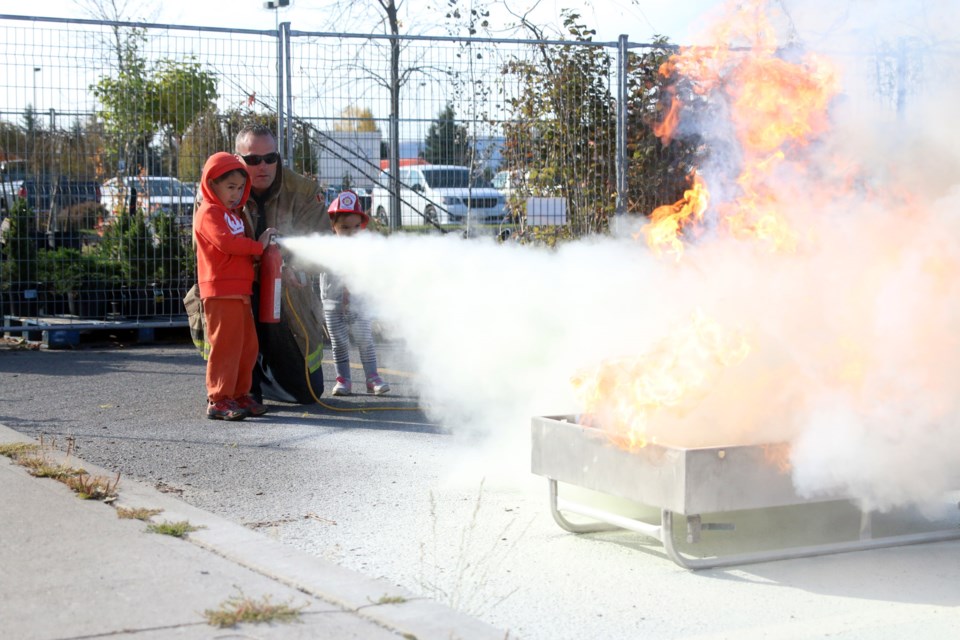THUNDER BAY - We see them almost everywhere we go, but when it comes to this potentially lifesaving device, not everyone may know how to actually use it.
On Saturday, members of Thunder Bay Fire Rescue were at Home Depot to provide fire extinguisher training to wrap up Fire Prevention Week.
“Fire extinguishers are in pretty much every building, but not too many people use them, so this is an opportunity to educate them,” said Kevin Anderson, fire prevention officer with Thunder Bay Fire Rescue. “It takes a little bit to learn how to do, but once you’ve done it, it makes a lot easier in an emergency situation.”
The demonstration was available to anyone interested in learning this important skill, and even kids were extinguishing fires with the help of local firefighters.
“The kids love it,” Anderson said. “All ages love it. Not too many people have done it before and when they do it they realize they can put out a fire and gain confidence and it helps all around.”
The easiest way to remember how to properly use a fire extinguisher is the acronym, PASS, which stands for pull the pin, aim, squeeze, and sweep.
“You have to make sure you squeeze and hit the base of the fire and sweep,” Anderson said. “There’s a process in how to do it.”
The demonstration also included a ladder and pumper truck, as well as fire prevention information about smoke alarms and CO2 detectors, because as Anderson said, preventing a fire is the first step in fighting one.
“Our primary thing is education and fire prevention,” he said. “That’s how it all starts. If we can prevent fires, educate people with smoke alarms, CO2 detectors, fire extinguishers, we can reduce the number of fires we go to and save lives.”
Anderson added that fire prevention education is an ongoing process, and while most people get it, some still need a little more practice.
Anderson is also reminding the public that with the time change coming up in November, it’s time to change the batteries in all smoke alarms, and if the alarm itself is more than 10 years old, it should be replaced.
